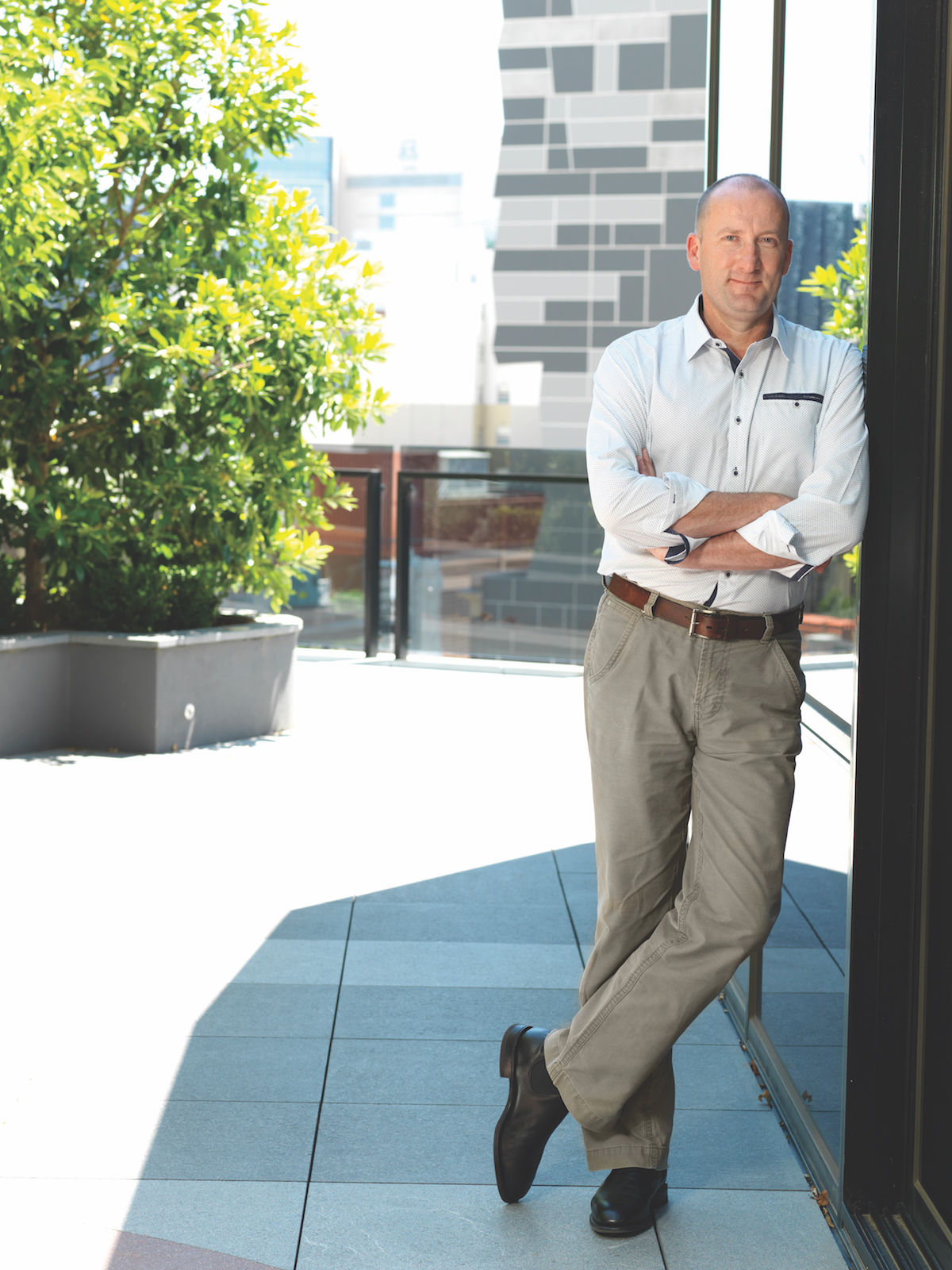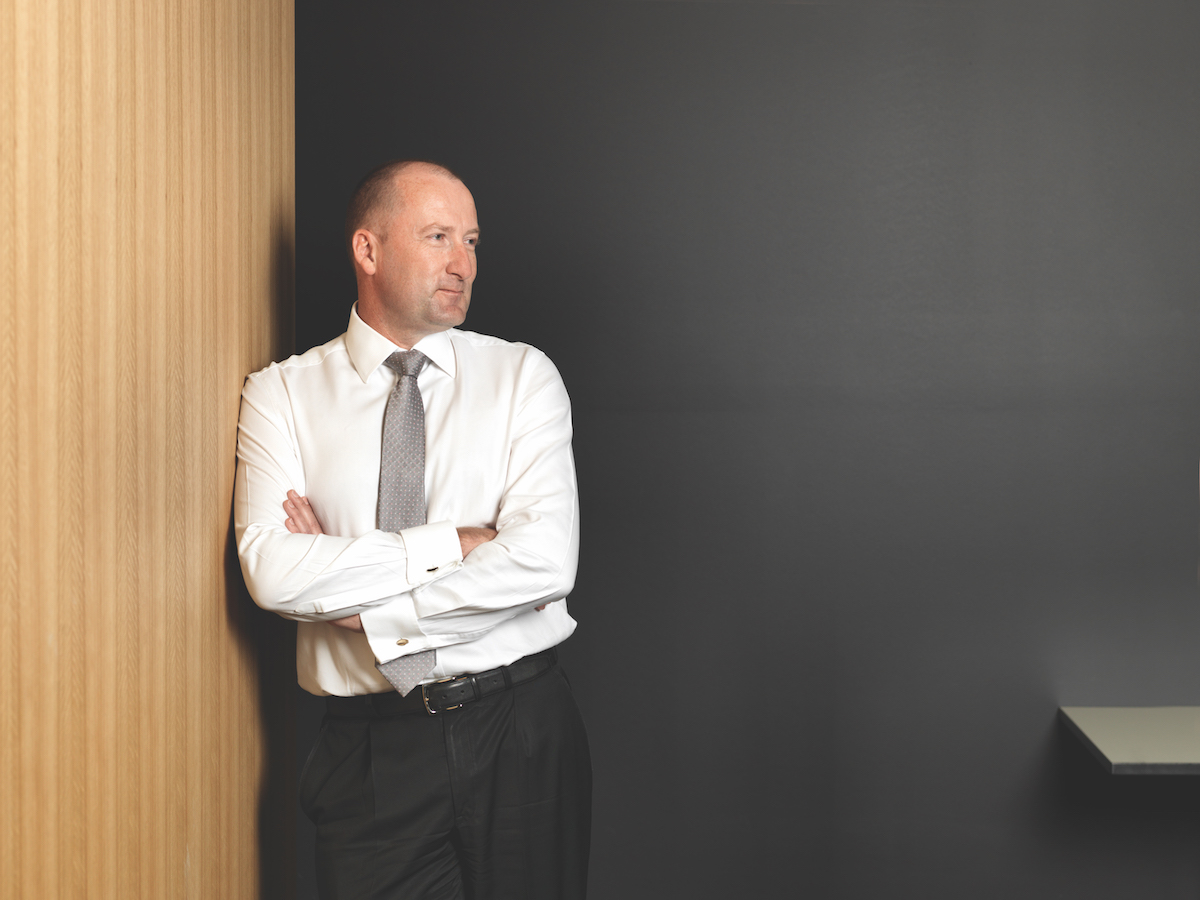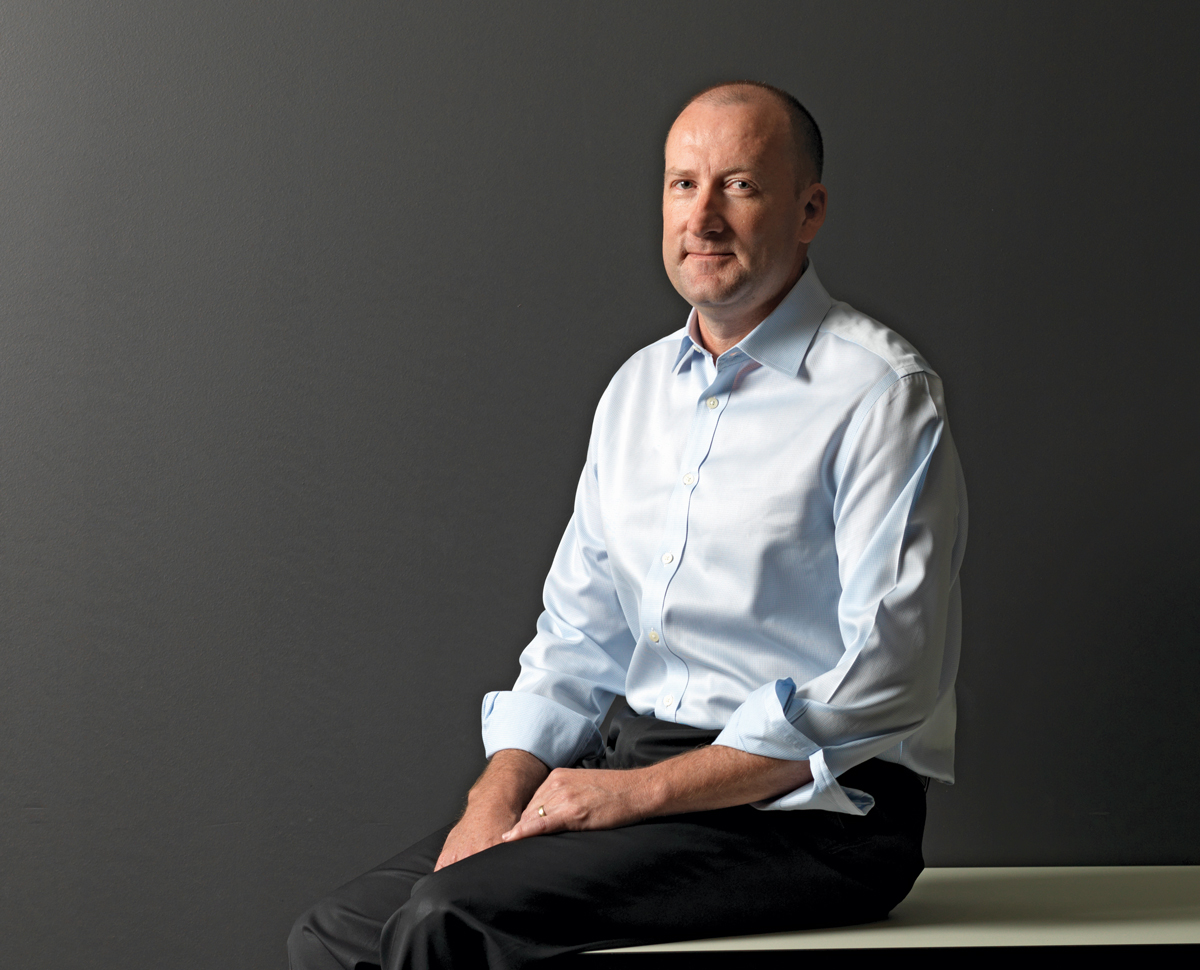Recruiting between 5,000 and 13,000 candidates a year across the Australian Navy, Army and Air Force is no mean feat — particularly when this number scales back from around 70,000 applications — but it’s one that Glenn McPhee has undertaken for ManpowerGroup Australia in a contract awarded in 2012, valued at up to $100 million per year.
Fresh out of the army where he held the rank of major in the artillery, Glenn was inspired to join ManpowerGroup not only by the role but by the managing director at the time. “It wasn’t recruitment itself that attracted me; rather, it was a combination of the role and who my boss would be — Varina Nissen is a really amazing and impressive business woman. Knowing I would learn about business from the best was what attracted me in the first instance,” says Glenn.
Glenn’s next foray was into defence and aerospace with French company Thales, before returning to the ManpowerGroup fold in 2008 as regional manager for the Middle East, a division that had been set up just a few months prior. The Middle East wing of the global company, which was born in the American state of Wisconsin in 1948 and launched in Australia in 1965, had acquired a recruiting business in the region, and Glenn’s job was to create and grow the strategic clients division in order to deliver large-scale recruiting projects.

“Going to Dubai presented the challenge of putting my recently gained business theory into practice, learning how to create a strategic division and start delivering to clients, at scale,” he says. And it wasn’t only the on-the-job training that advanced Glenn’s career trajectory; the military taught him a lot — about people, confidence, leadership and work relationships.
“I think confidence in yourself, and in those around you, is really important,” says Glenn. “The military also taught me mental discipline and initiative, plus a reliance on teamwork and an ability to trust others. In the army, you are taught to challenge in a respectful space — that’s not just officers and leaders, but all soldiers.”
The Next Generation
Fast-forward 9 years and Glenn is now his company’s director for Defence Force Recruiting (DFR), a public–private collaboration between the Australian Department of Defence and ManpowerGroup, challenged with attracting and recruiting Australia’s next generation of sailors, soldiers and air men and women. Glenn heads up ManpowerGroup’s operation and supports Navy Commodore Tony Partridge, who is director-general of DFR.
DFR has been described as the largest recruiting contract of its type in the world, because the recruitment process itself is vast in terms of the scope and volume of work outsourced, as well as the revenue. This type of outsourcing, or RPO (recruitment process outsourcing), for the military is something that Glenn came to understand well after 15 years in the army.
Initiative is another crucial skill instilled early in Glenn’s career. Perhaps contrary to popular belief, the army does not micromanage you. Glenn expresses this philosophy: “You’re generally not told how to do it, and therefore you are absolutely expected to work it out for yourself and find the best way of doing it. It doesn’t matter if it’s a simple job or a complex one; as a leader, you need to work it out.”
The Australian Defence Force (ADF) is constantly on the crest of the technology wave, and the ongoing recruitment drive is to ensure there is an appropriate workforce for the future. For example, the engineers who will be required for new navy ships and submarines that are yet to be built will need different skills and experience from those required to maintain current ships.
Once they have an idea of the vast array of amazing jobs available, that’s where their interest is sparked.
Diversity is also a challenge that DFR has risen to face in recent years, with Glenn and his team asked to focus on recruiting more women, Indigenous Australians, and people from culturally and linguistically diverse backgrounds, and fine-tuning internal training so recruiters mentor candidates more personally.
The current job environment in Australia represents an ongoing ‘war for talent’ for professions requiring high skill levels, innovation, leadership and fitness. Success in this environment requires contemporary, agile and innovative organisations that truly understand their customers.
“Over the past 12 months, we have been really busy rolling out advanced training across the entire DFR organisation, focused not only on accessing greater diversity for the ADF workforce but also diversity of thought and changing how our people interact with candidates. I really believe these initiatives put us in a position to be recognised as one of the best-practice organisations globally in terms of how we deliver diversity and how we treat candidates as individuals,” says Glenn. “I hope we’ll be measured by the quality of the passionate, diverse and talented recruits we achieve for the ADF.”
The DFR contract, worth up to $100 million per year, sees thousands of recruits brought into the ADF every year. Recruiting is a collaborative business, with ManpowerGroup bringing marketing and recruiting expertise to the contract, and ADF military members engaging, mentoring, interviewing and selecting candidates in conjunction with ManpowerGroup’s psychologists and medical staff provided by subcontractor Corporate Health Group Defence.
The Multimillion-Dollar Question
How is that $100 million spent? Glenn explains he works very closely with the director-general, side by side on virtually all areas of the contract and recruitment activities.
“In essence, the commodore sets the strategic vision and priorities in addition to current and future recruiting requirements, and ManpowerGroup works collaboratively to meet them. What that means is that each year we receive the list of vacancies for the following year. So we may get 8,000 vacancies at once, and then we will work on those over the next 12 months.” This information is critical to Glenn and his division so they can make sure the marketing and attraction initiatives target the right roles, services or categories.

“While we may conduct a specialist search for roles such as engineers and medical professionals, the major focus for many roles is on national-level advertising backed by regional advertising and recruitment activity to have people come through the front door, which is either to call our 13 19 01 number or go to our website www.defencejobs.gov.au
If the roles are for chaplains or doctors, DFR attends events and conferences where these professionals might be and enable conversations about ADF roles and possibilities. “It’s the same with university students coming up to graduation,” says Glenn. “Somebody might not normally consider joining the ADF or realise there’s a job for them, but once they talk to someone from DFR and have an idea of the vast array of amazing technical and specialist jobs available, that’s where their interest is sparked.”
DFR by numbers
Up to 300 different job roles to fill
100% of job categories open to women
30% of women among full-time recruits
2003 is the year ManpowerGroup’s relationship with the ADF began
5,000-13,00 of vacanies DFR needs to fill each year for the ADF.
Future Proof
Recruitment is open to everyone from Year 11 school leavers (who can go on to complete their HSC while earning a salary) to more mature candidates considering a change in career, through to specialists such as doctors and chaplains with unique skills and qualifications.
Requirements are different for each age group, category and skill set, so while candidates for a generalist officer role might be required to undertake a 12- to 18-month officer training course, some specialist officers may complete their officer training in as little as 9 days, depending on what their role would be after graduation.
There are a number of different pathways into the ADF, depending on the job a person is taking. “The commodore has been given a mandate from each of the navy, army and air force at the highest levels to contemporise the organisation, expand the talent pool, and deliver greater, more consistent results, and ManpowerGroup has responded.
Together we are changing the delivery model within DFR so that we are a more agile organisation, recruiting the best possible candidates for the ADF from across the entire talent spectrum, and at the same time giving those Australians the best possible candidate experience.”
One of the challenges the commodore, and therefore Glenn, have embarked upon is to get that process down to an average of 3 months. “If we can do that, it will be quite amazing. It might not mean that you start your initial training within 3 months if you haven’t yet finished Year 12, but you may have received an employment offer and you could accept that, pending your HSC results. Ideally, the recruitment process will occur within 3 months, and that’s what we are driving for.”

